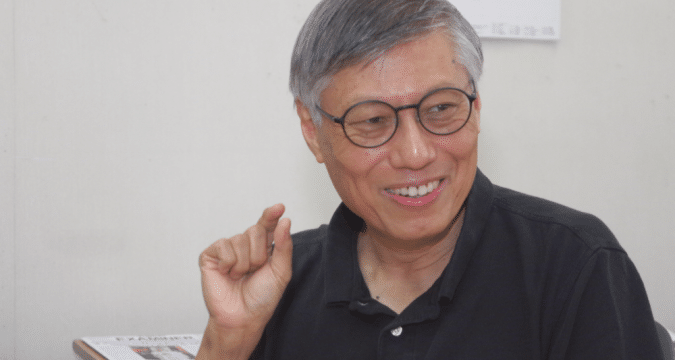
By Bishop Stephen Chow Sau Yan, SJ
A happy and blessed New Year to you all!
I understand that some of us have the habit of making New Year resolutions. And I have had my share in the past. However, I have stopped doing that since I came to see how much I needed God for the realisation of my resolutions. I simply could not do that on my own. If not blessed by God, in vain would I make them my resolutions. Even if they were realised, they would not be of ‘good’ value to me and others. Of course, God can always make something good out of my mistakes. But how often should I put God in that position?
However, that does not mean I cannot have my desires for the future. What I have shared in my recent Advent Pastoral Letter and my Christmas message reflect my desires for our diocese, our beloved city, and our world in this new year and beyond.
Moreover, these desires became clear to me after rounds of conversation and discernment with different groups. I believe they have the finger of God in them. So, I can have a certain level of confidence that God will accompany my companions and me when we work on those desires with an ongoing “discernment-in-common.”
Yes, communal discernment is necessary, for we do not want to make those desires our pet projects and mainly for our own satisfaction. Whenever we discern as a community, we believe the Holy Spirit will speak to us through others when we are open to listening to them. Such is the essential act for synodality.
Another valuable lesson learned from our Emmanuel is the art of accompaniment. This being-with or accompaniment is an art that does not come naturally to us, and certainly not to us who are living in a fast-paced, ever-efficiency-conscious, and achievement-oriented culture.
Looking at our Emmanuel, if we are not willing to stoop down and eagerly learn from the ones whom we mean to accompany, we cannot be accompanying them. If we do not allow ourselves to ‘waste’ as much time as is desirable with them, we will be wasting our own time. And if we do not want to share their joys and sorrows by being there with them, we cannot understand them. Then we cannot be of meaningful help to those whom we think we are accompanying. And without that, we will not be able to help them appreciate our faith or our God.
This being-with of the Emmanuel is crucial for my ability to carry out my mission as bishop of Hong Kong, for it allows me to count on God whenever I find myself disturbed, perplexed, or helpless. In fact, whenever I was asked what I wanted to give thanks to God, God’s accompaniment through my ups and downs, especially when my heart and mind were not with God, readily came to my mind. I hope that you are sharing my experience too!
If we ever consider giving up, we should think about why we started in the first place. It is about our “primordial heart” (初心) as much as the confirmation of God’s blessing on our choice. Has God changed His mind, or have we lost our faith in God and in our own convictions?
My sisters and brothers, may this new year be one of which we become better learners of the art of accompaniment for those who will appreciate it from us. And may we become better companions to each other as we learn to become a synodal Church for God’s mission — the mission of love and salvation in our world!
+ Stephen Chow, SJ










